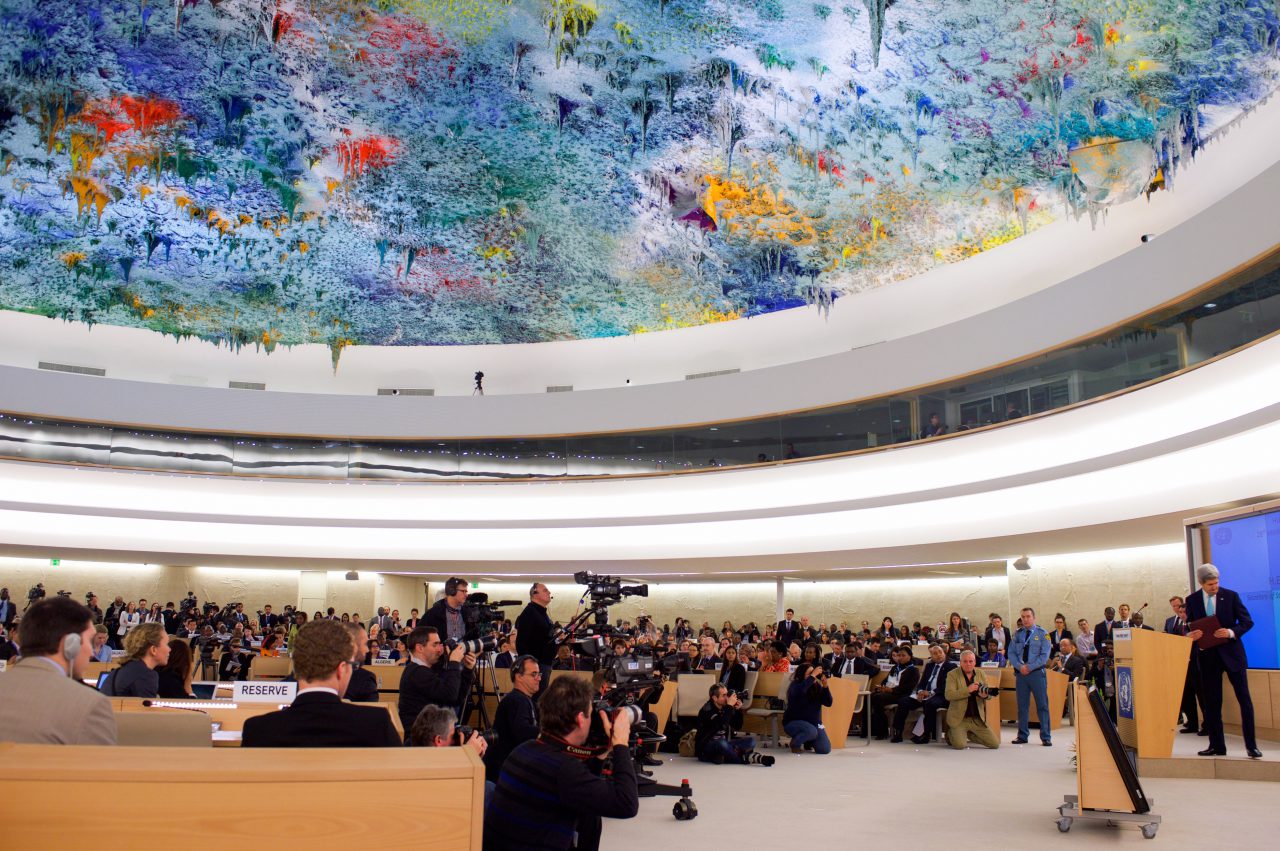Today, Access Now condemns the Trump Administration after its announcement that the United States is pulling out of the United Nations Human Rights Council (“HRC”). The HRC is a 47-state body entrusted with protecting and promoting human rights, one of the three pillars set out in the U.N. Charter, along with ensuring peace, security, and international development.
“Protecting human rights is difficult, messy work; abdicating responsibility and blaming other countries is easy, and cowardly,” said Peter Micek, General Counsel and Access Now’s lead on business and human rights. “The HRC has a history of bringing global attention to human rights violations, condemning the actions of those involved, and reinforcing a commitment to protecting the rights of individuals. No other body holds its power to define human rights in the digital age.”
Amie Stepanovich, U.S. Policy Manager, added, “The departure from the Human Rights Council is just the latest in a long string of actions by the current U.S. government administration that undermine human rights. Unfortunately, the United States under President Trump has doubled down on isolationist, harmful policies that have done great damage to the human rights of people in the United States, at the borders, and around the world.” In 2017, Access Now recognized President Trump and his top advisors as “villains” of human rights for their harmful and privacy invasive policies.
This action and others leave doubt as to what, if any, commitment the United States maintains toward human rights, internet freedom, and the rule of law online. The groundbreaking “internet resolution,” which first declared that human rights apply equally online as offline, is up for renewal during this current HRC session. As a member of the core group of authors, the U.S. held the pen on this key text that advances the meaning of “freedom of expression” in the digital age.
The U.S. State Department has not always lobbied in support of the most vulnerable or marginalized. Its failure to recognize the fundamental right to privacy of non-U.S. citizens, in particular, has slowed progress in upholding that right for the digital age. However, in its work on issues such as LGBTQ rights, freedom of expression, and election reforms, the U.S. has had a positive influence in the HRC’s work on protecting at-risk communities.
Members of civil society, which includes journalists and human rights defenders, are under constant and increasing attack for their advocacy and participation in U.N. processes and mechanisms. In fact, in the current session, the Human Rights Council will approve a new resolution calling attention to the shrinking spaces for open and safe advocacy.
To clarify how the United States will fulfill its duties to protect and promote human rights, Access Now calls upon the Trump Administration to answer the following questions:
- What international mechanisms will the United States engage in to respond to human rights violations around the world?
- Whom does the U.S. expect to take its place in the core group for the “internet resolution,” a key way to protect and promote human rights online?
- How will the U.S. now protect NGOs and activists bringing complaints and evidence to the HRC?
- Will the U.S. continue to participate in the Universal Periodic Review mechanism that asks all countries to answer for their human rights records?
